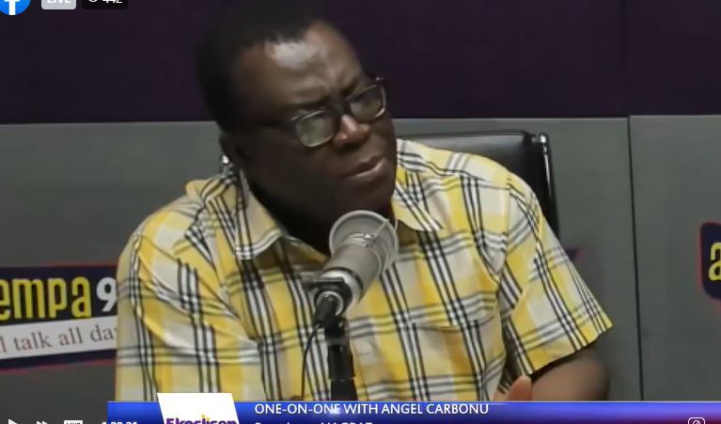
Audio By Carbonatix
President of the National Association of Graduate Teachers (NAGRAT), Angel Carbonu, says organized labour’s demand for a 60% increment in base pay is justified.
Organised labour in a letter signed by TUC General Secretary, Dr. Yaw Baah and Isaac Bampoe Addo, Chairman of the Forum of Public Sector Workers, had cited the rising inflation and the 15% Cost of Living Allowance (COLA) granted on the National Daily Minimum Wage as grounds for a 60% increment in base pay.
According to Organised Labour, a huge gap has been created between the National Daily Minimum Wage and the Base Pay as a result of accepting COLA instead of normal salary increase and granting increases in the National Daily Minimum Wage.
Speaking on JoyNews’ PM Express, Angel Carbonu explained that taking into consideration the prevailing economic circumstance it is only right that organized labour demand an increase in base pay to match inflation and the depreciation of the cedi.
He noted that even government has adjusted rates at which they provide service to meet the prevailing economic circumstance thus it is only natural that workers would do same.
“Something very interesting is happening. Government itself how are they pricing their services to the citizens of this country? Once you have the depreciation of the cedi, it will always have a direct effect on the levels of duties that are paid at the ports.
“So for example an importer told me just a few days ago [that] she shipped goods from China to Ghana and brought the bill so as to prepare for the duties that she will pay when the goods arrive. The amount of money that was quoted as at the time that she did the enquiry was at 62,000 Ghana cedis,” he said.
He continued, “When the goods arrived and she went to the harbor to clear, it has increased to 152,000 Ghana cedis, why? Just because the cedi has depreciated. So government itself uses the depreciation of the cedi or the appreciation of the dollar to determine how much people pay at the ports. Can we say by this behavior government is contributing to high prices of goods and services on our markets? That is what it is.
“At the end of the day the worker or the ordinary Ghanaian is the one who suffers. So we factored all these into the negotiations that we’re having and anything less than this will not have any significant tell on our incomes.”
Latest Stories
-
Adom FM’s ‘Strictly Highlife’ lights up La Palm with rhythm and nostalgia in unforgettable experience
2 hours -
Ghana is rising again – Mahama declares
5 hours -
Firefighters subdue blaze at Accra’s Tudu, officials warn of busy fire season ahead
6 hours -
Luv FM’s Family Party In The Park ends in grand style at Rattray park
6 hours -
Mahama targets digital schools, universal healthcare, and food self-sufficiency in 2026
6 hours -
Ghana’s global image boosted by our world-acclaimed reset agenda – Mahama
6 hours -
Full text: Mahama’s New Year message to the nation
6 hours -
The foundation is laid; now we accelerate and expand in 2026 – Mahama
7 hours -
There is no NPP, CPP nor NDC Ghana, only one Ghana – Mahama
7 hours -
Eduwatch praises education financing gains but warns delays, teacher gaps could derail reforms
7 hours -
Kusaal Wikimedians take local language online in 14-day digital campaign
8 hours -
Stop interfering in each other’s roles – Bole-Bamboi MP appeals to traditional rulers for peace
8 hours -
Playback: President Mahama addresses the nation in New Year message
8 hours -
Industrial and Commercial Workers’ Union call for strong work ethics, economic participation in 2026 new year message
10 hours -
Crossover Joy: Churches in Ghana welcome 2026 with fire and faith
10 hours

